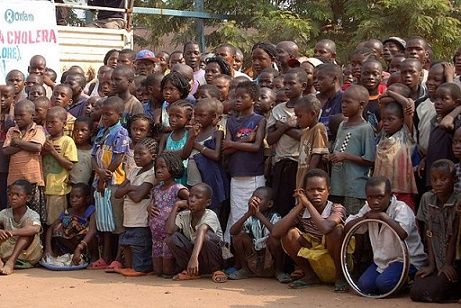Ulla Tørnæs, the development minister, is in Abidjan at the EU-African Union summit. Under the heading ‘Investing in young people’, the overarching theme of the summit is job creation, growth and employment opportunities for the growing numbers of young people born in Africa.
The summit will also touch on hot issues such as illegal migration, instability and conflicts, underlining the importance of strengthening the strategic partnership between the EU and Africa.
“In 2050, one out of three youngsters in the world will be African. The large numbers of young people have the potential to create increased growth and sustainable development, but also constitute a significant challenge,” said Tørnæs.
The minister added it was one of the top priorities of the government to stem the tide of migrants heading for Europe, and that one of the ways to do this was to create greater opportunities for Africa’s young people back home in Africa.
Prior to the summit, Tørnæs announced a further Danish contribution to the EU’s Trustfund for Africa of 30 million kroner. The money is expected to be used to support the work of the UN in improving conditions for migrants in Libya.
Prioritising foreign language tuition
Most Danes speak English, but for some time now companies have been crying out for people who speak other languages in combination with their regular educational qualifications – for example, engineers who can speak German or French.
To that end, as well as launching a new language strategy, the government has also set aside 100 million kroner. Languages are seen as the key to functioning in an increasingly globalised world and it is important to start sooner rather than later. “If we want adults with good, broad language skills, the work begins with children,” said the education minister, Merete Riisager.
“The individual pupil has to be inspired at an early age with language tuition of a high quality. That’s what our new initiative is intended to do, so both the motivation to learn languages and better language tuition should follow each pupil all the way through their schooling.”
Combining high-tech and humanitarian work
The Danish government has made a special grant of 2.5 million kroner to a project run by the aid organisation Dansk Flygtningehjælp and IT giant IBM to develop an innovative analytical tool with the ability to predict migrant and refugee streams. The computer model would be used to assist in planning humanitarian work better. The project is part of the government’s new TechPlomacy initiative and, when completed, the computer model will be made available as ‘open source’ software, so other interested parties such as the UN can extract data and analyses to make their own humanitarian contributions more proactive.
Denmark the economic equivalent of Missouri
It may sound hard to believe, but every state in the US has a GDP equivalent among the world’s major nations. A recent analysis by the American Enterprise Institute has used statistics compiled by the Bureau of Economic Analysis and the International Monetary Fund to draw up a ‘league table’ matching the 2015 GDP figures of each state against that of a country. California is the top scorer with a GDP of 2.46 trillion dollars and this is closely matched by France, which has a GDP of 2.42 trillion. Somewhat further down the list, Denmark (GDP 295 billion dollars) comes 22nd on the league table, with a GDP equating to that of Missouri (291 billion dollars). At the bottom of the table we have Vermont and Bahrain, with GDPs of 30.40 and 30.41 billion dollars respectively.











